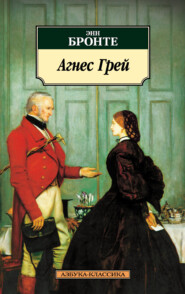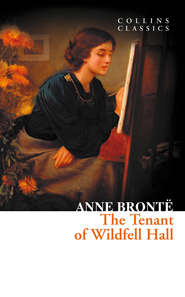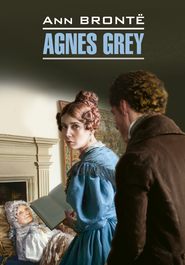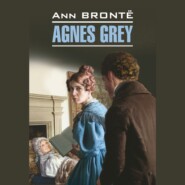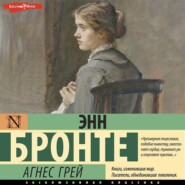По всем вопросам обращайтесь на: info@litportal.ru
(©) 2003-2025.
✖
The Tenant of Wildfell Hall
Настройки чтения
Размер шрифта
Высота строк
Поля
'I am satisfied,' he replied, with bitter emphasis, 'that you are the most cold-hearted, unnatural, ungrateful woman I ever yet beheld!'
'Ungrateful, sir?'
'Ungrateful.'
'No, Mr. Hargrave, I am not. For all the good you ever did me, or ever wished to do, I most sincerely thank you: for all the evil you have done me, and all you would have done, I pray God to pardon you, and make you of a better mind.' Here the door was thrown open, and Messrs. Huntingdon and Hattersley appeared without. The latter remained in the hall, busy with his ramrod and his gun; the former walked in, and stood with his back to the fire, surveying Mr. Hargrave and me, particularly the former, with a smile of insupportable meaning, accompanied as it was by the impudence of his brazen brow, and the sly, malicious, twinkle of his eye.
'Well, sir?' said Hargrave, interrogatively, and with the air of one prepared to stand on the defensive.
'Well, sir,' returned his host.
'We want to know if you are at liberty to join us in a go at the pheasants, Walter,' interposed Hattersley from without. 'Come! there shall be nothing shot besides, except a puss or two; I'll vouch for that.'
Walter did not answer, but walked to the window to collect his faculties. Arthur uttered a low whistle, and followed him with his eyes. A slight flush of anger rose to Hargrave's cheek; but in a moment he turned calmly round, and said carelessly:
'I came here to bid farewell to Mrs. Huntingdon, and tell her I must go to-morrow.'
'Humph! You're mighty sudden in your resolution. What takes you off so soon, may I ask?'
'Business,' returned he, repelling the other's incredulous sneer with a glance of scornful defiance.
'Very good,' was the reply; and Hargrave walked away. Thereupon Mr. Huntingdon, gathering his coat-laps under his arms, and setting his shoulder against the mantel-piece, turned to me, and, addressing me in a low voice, scarcely above his breath, poured forth a volley of the vilest and grossest abuse it was possible for the imagination to conceive or the tongue to utter. I did not attempt to interrupt him; but my spirit kindled within me, and when he had done, I replied, 'If your accusation were true, Mr. Huntingdon, how dare you blame me?'
'She's hit it, by Jove!' cried Hattersley, rearing his gun against the wall; and, stepping into the room, he took his precious friend by the arm, and attempted to drag him away. 'Come, my lad,' he muttered; 'true or false, you've no right to blame her, you know, nor him either; after what you said last night. So come along.'
There was something implied here that I could not endure.
'Dare you suspect me, Mr. Hattersley?' said I, almost beside myself with fury.
'Nay, nay, I suspect nobody. It's all right, it's all right. So come along, Huntingdon, you blackguard.'
'She can't deny it!' cried the gentleman thus addressed, grinning in mingled rage and triumph. 'She can't deny it if her life depended on it!' and muttering some more abusive language, he walked into the hall, and took up his hat and gun from the table.
'I scorn to justify myself to you!' said I. 'But you,' turning to Hattersley, 'if you presume to have any doubts on the subject, ask Mr. Hargrave.'
At this they simultaneously burst into a rude laugh that made my whole frame tingle to the fingers' ends.
'Where is he? I'll ask him myself!' said I, advancing towards them.
Suppressing a new burst of merriment, Hattersley pointed to the outer door. It was half open. His brother-in-law was standing on the front without.
'Mr. Hargrave, will you please to step this way?' said I.
He turned and looked at me in grave surprise.
'Step this way, if you please!' I repeated, in so determined a manner that he could not, or did not choose to resist its authority. Somewhat reluctantly he ascended the steps and advanced a pace or two into the hall.
'And tell those gentlemen,' I continued – 'these men, whether or not I yielded to your solicitations.'
'I don't understand you, Mrs. Huntingdon.'
'You do understand me, sir; and I charge you, upon your honour as a gentleman (if you have any), to answer truly. Did I, or did I not?'
'No,' muttered he, turning away.
'Speak up, sir; they can't hear you. Did I grant your request?
'You did not.'
'No, I'll be sworn she didn't,' said Hattersley, 'or he'd never look so black.'
'I'm willing to grant you the satisfaction of a gentleman, Huntingdon,' said Mr. Hargrave, calmly addressing his host, but with a bitter sneer upon his countenance.
'Go to the deuce!' replied the latter, with an impatient jerk of the head. Hargrave withdrew with a look of cold disdain, saying, – 'You know where to find me, should you feel disposed to send a friend.'
Muttered oaths and curses were all the answer this intimation obtained.
'Now, Huntingdon, you see!' said Hattersley. 'Clear as the day.'
'I don't care what he sees,' said I, 'or what he imagines; but you, Mr. Hattersley, when you hear my name belied and slandered, will you defend it?'
'I will.'
I instantly departed and shut myself into the library. What could possess me to make such a request of such a man I cannot tell; but drowning men catch at straws: they had driven me desperate between them; I hardly knew what I said. There was no other to preserve my name from being blackened and aspersed among this nest of boon companions, and through them, perhaps, into the world; and beside my abandoned wretch of a husband, the base, malignant Grimsby, and the false villain Hargrave, this boorish ruffian, coarse and brutal as he was, shone like a glow-worm in the dark, among its fellow worms.
What a scene was this! Could I ever have imagined that I should be doomed to bear such insults under my own roof – to hear such things spoken in my presence; nay, spoken to me and of me; and by those who arrogated to themselves the name of gentlemen? And could I have imagined that I should have been able to endure it as calmly, and to repel their insults as firmly and as boldly as I had done? A hardness such as this is taught by rough experience and despair alone.
Such thoughts as these chased one another through my mind, as I paced to and fro the room, and longed – oh, how I longed – to take my child and leave them now, without an hour's delay! But it could not be; there was work before me: hard work, that must be done.
'Then let me do it,' said I, 'and lose not a moment in vain repinings and idle chafings against my fate, and those who influence it.'
And conquering my agitation with a powerful effort, I immediately resumed my task, and laboured hard all day.
Mr. Hargrave did depart on the morrow; and I have never seen him since. The others stayed on for two or three weeks longer; but I kept aloof from them as much as possible, and still continued my labour, and have continued it, with almost unabated ardour, to the present day. I soon acquainted Rachel with my design, confiding all my motives and intentions to her ear, and, much to my agreeable surprise, found little difficulty in persuading her to enter into my views. She is a sober, cautious woman, but she so hates her master, and so loves her mistress and her nursling, that after several ejaculations, a few faint objections, and many tears and lamentations that I should be brought to such a pass, she applauded my resolution and consented to aid me with all her might: on one condition only: that she might share my exile: otherwise, she was utterly inexorable, regarding it as perfect madness for me and Arthur to go alone. With touching generosity, she modestly offered to aid me with her little hoard of savings, hoping I would 'excuse her for the liberty, but really, if I would do her the favour to accept it as a loan, she would be very happy.' Of course I could not think of such a thing; but now, thank heaven, I have gathered a little hoard of my own, and my preparations are so far advanced that I am looking forward to a speedy emancipation. Only let the stormy severity of this winter weather be somewhat abated, and then, some morning, Mr. Huntingdon will come down to a solitary breakfast-table, and perhaps be clamouring through the house for his invisible wife and child, when they are some fifty miles on their way to the Western world, or it may be more: for we shall leave him hours before the dawn, and it is not probable he will discover the loss of both until the day is far advanced.
I am fully alive to the evils that may and must result upon the step I am about to take; but I never waver in my resolution, because I never forget my son. It was only this morning, while I pursued my usual employment, he was sitting at my feet, quietly playing with the shreds of canvas I had thrown upon the carpet; but his mind was otherwise occupied, for, in a while, he looked up wistfully in my face, and gravely asked, – 'Mamma, why are you wicked?'
'Who told you I was wicked, love?'
'Rachel.'
'No, Arthur, Rachel never said so, I am certain.'
'Well, then, it was papa,' replied he, thoughtfully. Then, after a reflective pause, he added, 'At least, I'll tell you how it was I got to know: when I'm with papa, if I say mamma wants me, or mamma says I'm not to do something that he tells me to do, he always says, "Mamma be damned," and Rachel says it's only wicked people that are damned. So, mamma, that's why I think you must be wicked: and I wish you wouldn't.'
'My dear child, I am not. Those are bad words, and wicked people often say them of others better than themselves. Those words cannot make people be damned, nor show that they deserve it. God will judge us by our own thoughts and deeds, not by what others say about us. And when you hear such words spoken, Arthur, remember never to repeat them: it is wicked to say such things of others, not to have them said against you.'
'Then it's papa that's wicked,' said he, ruefully.






